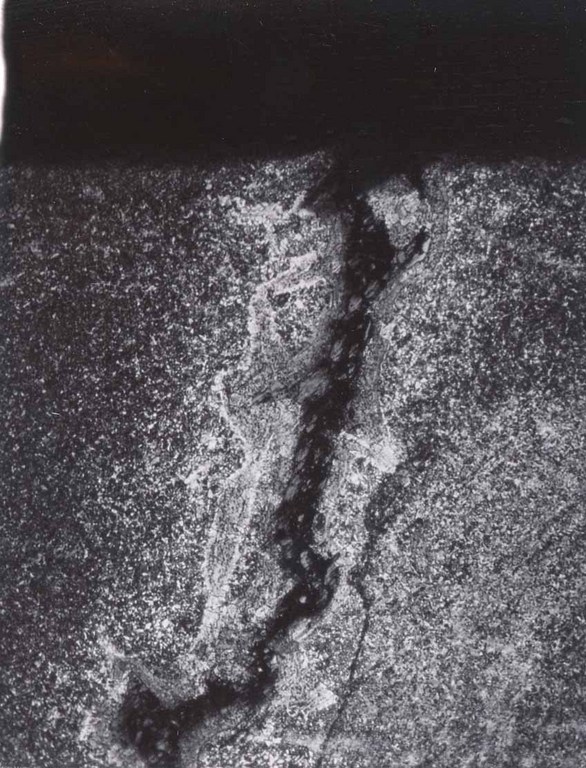- Basic Info
- Equipment
- Technology & Products
- Movie
- History, Philosophy & Quality
- EMIDASBLOG
- Map / HQ
Cracking Overheating Grinding Cracking Quench Cracking Induction Hardening
Industry
---
Specifications
- Materials:Steel
Cast Iron - Lots: ---
- Precision: ---
Conventional technologies/differences from other companies
For our customers facing induction hardening cracking, let us at Fuji Denshi
resolve your issues.
◆Cracking◆
Cracking can occur due to a number of different causes.
I. Overheating
~Cause~
Overheating causes the crystalline grains to enlarge, resulting in a large
drop in grain strength. At the same time, the grains begin to break down.
For a typical annealed material, grain size 8 correlates to strength
500MPa~600MPa, while size 3 correlates to 250MPa.
~Easily cracked materials~
High carbon steel (0.45% or higher) > steel alloys > low carbon stell
The risk for overheating cracking is highest for high carbon steel,
which has a high pearlite content. During heating, austenite dispersion
occurs easily, which can drastically increase the grain size.
II. Quench Cracking
~Cause~
If the quenching rate is too fast, the steel cannot withstand the stress
during martensite transformation. Large parts are especially vulnerable
to quench cracking due to the large temperature difference between the
surface and inner depth of the material. Particular care is needed for
quenching of chrome molybdenum alloys such as SCM440.
III. Grinding Cracking
~Cause~
The heat generated during grinding can cause residual austenite to transform
into austenite, and the resultant expansion can cause stress cracking.
These and other effects can cause cracking individually and in combination.
Using our extensive experience and research, we offer solutions for all types
of cracking.
~Cracking Overheating Grinding Cracking Quench Cracking
Induction Hardening~
Company info
| Company name | Fuji Electronics Industry Co., Ltd. | EMIDAS Member Number | 88995 |
|---|---|---|---|
| Country | Japan | Street address |
Oihara, Yao Osaka Japan |
| Telephone number | +81-72-991-1361 | Fax number | +81-72-991-1309 |
| Employees | 80,000,000 JPY | Annual sales | |
| Employees | 130 | Person in charge | Noumi |
| Type of manufacturing | Machine tools / Industrial machinery / Transportation equipment | ||
| Primary clients |
|
||
 Fuji Electronics Industry Co., Ltd.
Fuji Electronics Industry Co., Ltd.






